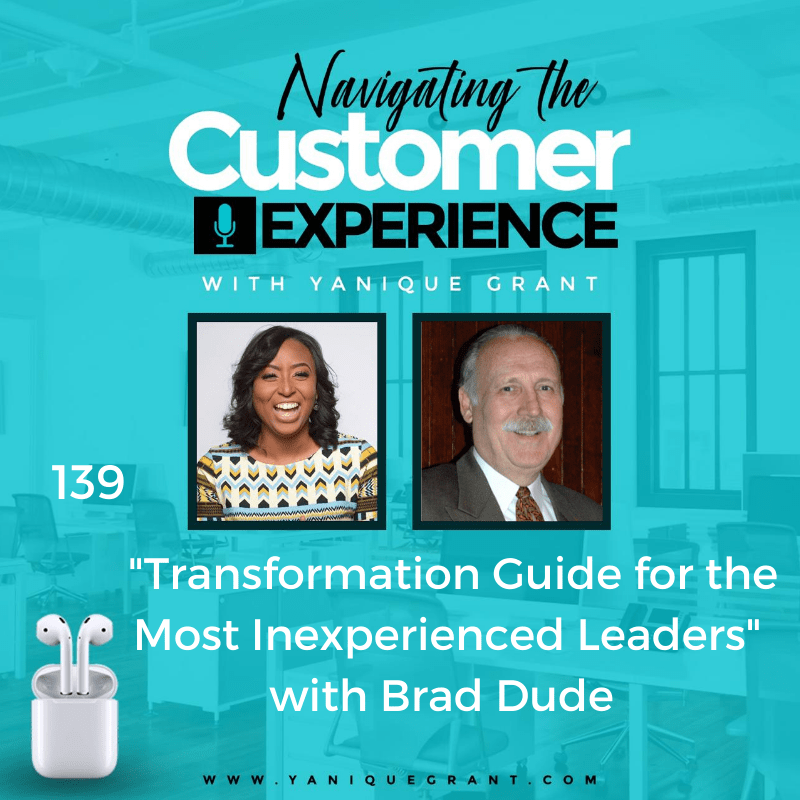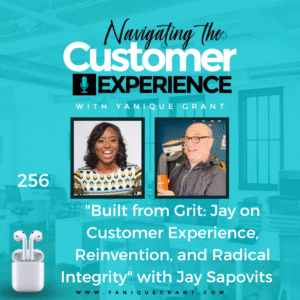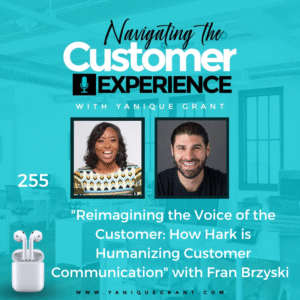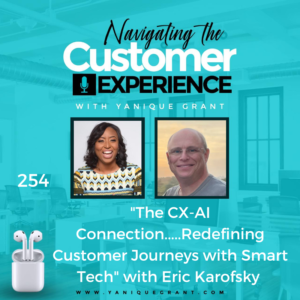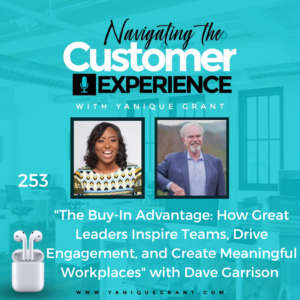Brad Dude has over 40 years and he has been in more than 30 territories and countries around the world. He has provided leadership training, organizational development, program evaluation, workforce training, coaching and project management services to US Government agencies, public and non-profit organizations and private sector enterprises. He specializes in training, group facilitation, process improvement, team building and strategic planning, especially for newly promoted team leaders, supervisors, managers and executives.
Brad brings a leadership and management background to his consulting having served as a senior staff member for the Peace Corps in Micronesia and Samoa. He has also worked in similar positions for other organizations in the Washington, DC area as well as New Orleans, where he now makes his home with his wife Sue. He has one son and three grandsons.
Questions
- Could you tell us a little bit about your journey? It’s a long journey, because your bio said over 40 years. Maybe you could condense it a little bit for us. But just tell us how it is that you got to where you are today in your own words.
- Your most recent book that you have published called Quick!, could you share with our listeners a little bit about that book and what is it all about?
- How as a leader, as a manager, as a business owner over the past couple of decades have you been able to get those leaders on board to recognize that customer experience is so important?
- Could you share with us what’s the one online resource, tool, website or app that you absolutely can’t live without in your business?
- Do you have maybe one or two books that have had the biggest impact on you? It could have been a book that you read a very long time ago, or even a book that you read recently, but it really has resonated with you.
- We have a lot of listeners who are business owners and managers who feel they have great products and services, but they lack the constantly motivated human capital. If you’re sitting across the table from that person, what’s the one piece of advice that you would give them to have a successful business?
- Could you share with us what’s the one thing that’s going on in your life right now that you’re really excited about? It could be something that you’re working on to develop yourself or your people.
- Where can listeners find you online?
- Do you have a quote or a saying that during times of adversity or challenge, they will tend to revert to it kind of helps to refocus them or get them back on track? Do you have one of those?
Highlights
Brad’s Journey
Brad shared that it is kind of a long journey, it gets longer every day, it seems like. He started out doing a management planning for the Peace Corps overseas in a variety of countries, mostly in the Pacific and then in the Middle East. And that got him into working for Westinghouse that brought him more into the middle East doing some project management for USAID projects and West Bank and Gaza. And that got him into the training more in the project management and coaching and counselling and they were doing a lot of executive coaching on management and leadership kinds of issues. Some colleagues of his started their own consulting firm in the DC area and that’s where he got to go to Jamaica for the first time in kind of the middle to late 80s doing a management analyst course.
Ministry of Planning and they met that time and it was great. And so he got four different trips down to Jamaica and participants were some of the best he’s ever had all over the world. So as he got older and wanted to jot down some of the things that he would do that seem to be fairly successful with his participants and clients, he started to write books. And so he has now got six books, they’re up on Amazon, mostly dealing with leadership and temperament and how new leaders view their world and try to help them out that way.
Brad’s Book “Quick!” What is it About?
Brad shared that his book, it’s called Quick!: I Need to Be a Leader in 30 Days!. And it’s a title that is focused on newly promoted or newly hired managers, supervisors and leaders. What he found, for example, the last 9 years, he has been teaching a leadership class for NASA, just outside of Washington, DC.
And he found that although when you’re in the classroom, face to face, it’s great and people seem to get things. But with training, training with organizations, even in government is often the first thing that’s cut.
And so, participants might go through one 12-day course or something, and then don’t hear from them again, and they maybe come back or write or ask for coaching and they felt there was a need to encapsulate in a handy guide of what somebody can do every day, because a lot of the questions are, “I have the title of leader or manager or supervisor, but what do I do?”
And so, he focused on what to do over a 30-day period and the idea was to help newly promoted folks hit the ground running so they can have some success. And I had Scott Blanchard, who is the now the President of the Ken Blanchard company. He wrote the foreword to their book, and he mentioned that over 50 million millennials are working in North America alone with 10 million in management, he estimates about 2 million new managers every year.
But the first year is very important and people usually don’t get trained during their first year. So there’s a lot of failure, failure by not meeting their own goals, expectations of their company aren’t met. And they thought that’s the time to really help them and have a guide to help them be successful. So they put together this book and basically said, how do you be a leader in 30 days?
Well, he has got four steps. First was to understand some of the basic principles of leadership and he subjectively picked the ones that he felt have been most successful for new managers and leaders. And then step two was to look at their followers, learn about who are those folks that are looking to you for guidance. Third step practical applications, you can’t just read a book, put it on a shelf and say, “I’m a leader”, you got to go out and do something, and practice. So in his book, he has practical readings and exercises, and especially the fourth step, which is have some reflection and support time. And that means identifying a coach, whether it be your supervisor, or mentor, or a friend, or a colleague, or your minister, whoever that is that you can bounce some ideas off of. And ultimately, they can give you some feedback as well on how you’re doing.
Me: Now, as it relates to who are your followers, if this is an employee in an organization, is it persons that look up to that person who now is the manager or leader? Is that what you mean?
Brad agreed. But it’s more than that. Ken Blanchard says it the best, he says, “Lead from wherever you are in the organization.” So you don’t necessarily have to have a title of manager, supervisor, leader to exhibit leadership behaviours. And so, whoever that is, and so, in the book, they are considering clients, people that report to you, people that you report to as well are all potential followers.
Me: Okay, so those are some really, really good strategies that you can employ for persons, as you mentioned, who are transitioning into that management/leadership role.
The Importance of Customer Experience
Me: Now, leadership is so critical to customer experience and there’s a saying that I have “That mud flows from the top of the stream.” When you find something that’s going awry in an organization, a lot of times, it’s not at the tip of where you’re looking at that the problem probably evolved from, but more so, you need to look at the leader and the structure of the organization and what’s happening at the top.
And so I wanted to speak a little bit about that for us, what if we have an organization where the leader doesn’t see the importance of customer experience, they’re not able to connect the two, they’re not able to connect the financial, because a lot of leaders, I think, still believe to this day that customer experience is just about making the customer feel good and they’re just not able to see that translate into a very tangible and financial way. How as a leader, as a manager, as a business owner over the past couple of decades have you been able to get those leaders on board to recognize that customer experience is so important?
Brad shared that it’s a challenge and there are many, many examples where leaders just don’t get it, because they are trapped into the idea that their position power is what’s important, and not so much their customers or their followers.
So they’ve done a lot of different ways, it depends on the openness of the leader. He worked with Department of Energy, their nuclear division for a while and they had a leader and oftentimes, these are political types who get in for whatever reason, not necessarily their leadership abilities. And they just don’t see it, it’s checking the box, “Oh, well, I’ve had a training. Check. I’ve had a meeting with a customer. Check.”
And things don’t go the way they should. What he typically does is do a series of interviews with the direct reports of such a leader to start to identify what are the true challenges in the organization. He really likes the idea about modelling the way and trying to talk to the leader about trying to be more of an exemplary leader. But also he likes the idea about challenging the process.
They have in the book, this is the Kouzes and Posner five practices of exemplary leadership – Modelling the way, Inspiring a shared vision, Challenging the process, Enabling others to Act and Courage the heart.
He likes to do a lot of process improvement with folks and they get a whiteboard and actually start to draw a schematic of the customer service process and who’s supposed to do what to whom. And he doesn’t do it as a group, he usually brings in parts because people, oftentimes in such a process are doing it, if they say it’s a five-part process, he brings in the folks who are doing part three, and let them do some drawings and say, “Oh, this is supposed to happen, that’s supposed to happen.”
And they go away and they bring in people from the first group, for example. So they end up with kind of this gigantic map done by different groups. And what they find is they’re in consistencies, expectations are off, somebody expects this group to be able to give them this kind of information, and it’s not happening. So then you kind of try to bring that leader in to show him or her what kind of mess they’re in and have some ideas, some strategies for helping them improve that process.
App, Website or Tool that Brad Absolutely Can’t Live Without in His Business
When asked about an online resource that he cannot live without in his business, Brad shared that the website he likes the most it’s called www.life-changingworkshops.com. And this is out of Chapala Institute. It’s based on a new book come out by Ken Nelson and some others, a variety of authors on it called Designing and Leading Transformational Workshops. He thinks for a new leader, outside of his own books, he thinks that’s a really good one and that’s a great website that they have as well. Another one is called www.ascenddevelopmentgroup.com. And this is run by a friend of his, Jeff Whitehead, they both did training at NASA together. He does outdoor experiential leadership workshops and it’s a very interesting website to show videos of how he interjects leadership into rope climbing and things like that.
Books That Have Had the Greatest Impact on Brad
When asked about books that have the biggest impact, Brad shared that there are several, one was called Why Him? Why Her?: How to Find and Keep Lasting Love by Dr. Helen Fisher. Brad is the co-author of a new model on looking at temperament called The Basic Elements of Temperament.
And a lot of their work, his late partner, Jim harden, they did that together. And Dr. Fisher kind of did similar kind of research, but on a larger scale dealing with some of the dating websites to look at how temperament influences the way we look at other people, the behaviours of others. Now, he and Jim, they’re not looking at dating, they’re looking at how leaders look at their employees and their managers and their customers.
So that book, Why Him? Why Her? is a really good one by Dr. Fisher to kind of give some basics as well. He also likes John Kotter’s work out of Harvard, “What Leaders Really Do.” He’s written a number of books on leadership and he just loves those books that really gets him thinking about leadership more.
Advice for Business Owner to Have a Successful Business
Brad stated that the one piece of advice, it’s hard to have one, but trust is a big issue and in his leadership courses that he has done in the past, trust is a big issue and that gets into a variety of things, including how to model the way and not making promises that you can’t keep and being consistent and things like that.
But he probably would spend time with a leader talking about temperament. His experience has been the difficulties that folks have with being professional, being productive, has a lot to do with their experience with their manager or their supervisor when they’re not getting along, when they feel they’re not being listened to, that is a de-motivator.
And people leave organizations, they don’t leave them because of the job or the work, it’s usually because of the relationship with their manager or supervisor. But he would spend some time trying to talk about how they are viewing the world, how they look at their position power. There’s three kinds of power, they have it in the book as well.
The lowest level of leadership is the position power; it’s having that title. And it seems that’s where everybody wants to be, “If I was only the boss, then I would solve all the problems.”
And then they get to be the boss and they realize, “Oh, it’s not as easy as I thought.” But they’d say, now I’m there, now they’ve got to do what I’m telling them to do. So that means your followers are following you because of the negative consequences if they don’t, that they could be fired, they could be assigned to lousy jobs, what have you. So it’s the lowest level, and that’s a power that doesn’t stay with you, when that manager leaves the organization, that power doesn’t go with him or her, it stays for the next person that’s coming. So it’s not even a power that you take with you.
So that’s the lowest level. The second one is that power of competence. That’s where followers follow you because of what you’ve done for the organization, because of what you’ve done for them. So that gets you into a mindset of “Gee, if I want to be competent, I need to be really sharp and look for opportunities to help my employees.”
And the third, the best kind of power that a leader can get is the power of positive reputation. And that’s why no matter what your title is, people follow you because of who you are. They’ll do whatever needs to be done if you ask them because of who you are, and what you stand for, and the values that you bring to the organization.
What Brad is Really Excited About Now!
Brad shared that during this pandemic, not a lot of training was going on, especially not a lot of leadership training, he has done a few zoom workshops over Zoom with 50/60 people. And there’s just not as many as there used to be. So he has had a lot of time and so he’s writing a novel called “Finding Eden.” And it’s based on kind of his travels throughout the Middle East and the issue about asylum seekers trying to find a better life. So he’s writing a novel, just about done. So he’s very excited about that right now.
Where Can We Find Brad Online
Website – www.braddude.com
LinkedIn – Brad Dude
Quote or Saying that During Times of Adversity Brad Uses
Brad stated that he does have a quote, the one he kind of refers to now and then, not every day, but sometimes. It’s says, “Don’t let yesterday take up too much of today.” And that was written by Will Rogers. So the idea is, don’t get bogged down with what you’ve done in the past. Today’s a new day and we need to go head on into the future.
Please connect with us on Twitter @navigatingcx and also join our Private Facebook Community – Navigating the Customer Experience and listen to our FB Lives weekly with a new guest
Grab the Freebie on Our Website – TOP 10 Online Business Resources for Small Business Owners
Links
- Quick! I Need to Be a Leader in 30 Days! by Brad Dude
- Why Him? Why Her?: How to Find and Keep Lasting Love by Dr. Helen Fisher
- Designing and Leading Life-Changing Workshops by Ken Nelson, David Ronka, Lesli Lang, Liz Korabeck-Emerson and Jim White
- What Leaders Really Do! by John P. Kotter
- Life-ChangingWorkshops.com
- AscendDevelopmentGroup.com
The ABC’s of a Fantastic Customer Experience
Do you want to pivot your online customer experience and build loyalty – get a copy of “The ABC’s of a Fantastic Customer Experience.”
The ABC’s of a Fantastic Customer Experience provides 26 easy to follow steps and techniques that helps your business to achieve success and build brand loyalty.
This Guide to Limitless, Happy and Loyal Customers will help you to strengthen your service delivery, enhance your knowledge and appreciation of the customer experience and provide tips and practical strategies that you can start implementing immediately!
This book will develop your customer service skills and sharpen your attention to detail when serving others.
Master your customer experience and develop those knock your socks off techniques that will lead to lifetime customers. Your customers will only want to work with your business and it will be your brand differentiator. It will lead to recruiters to seek you out by providing practical examples on how to deliver a winning customer service experience!

